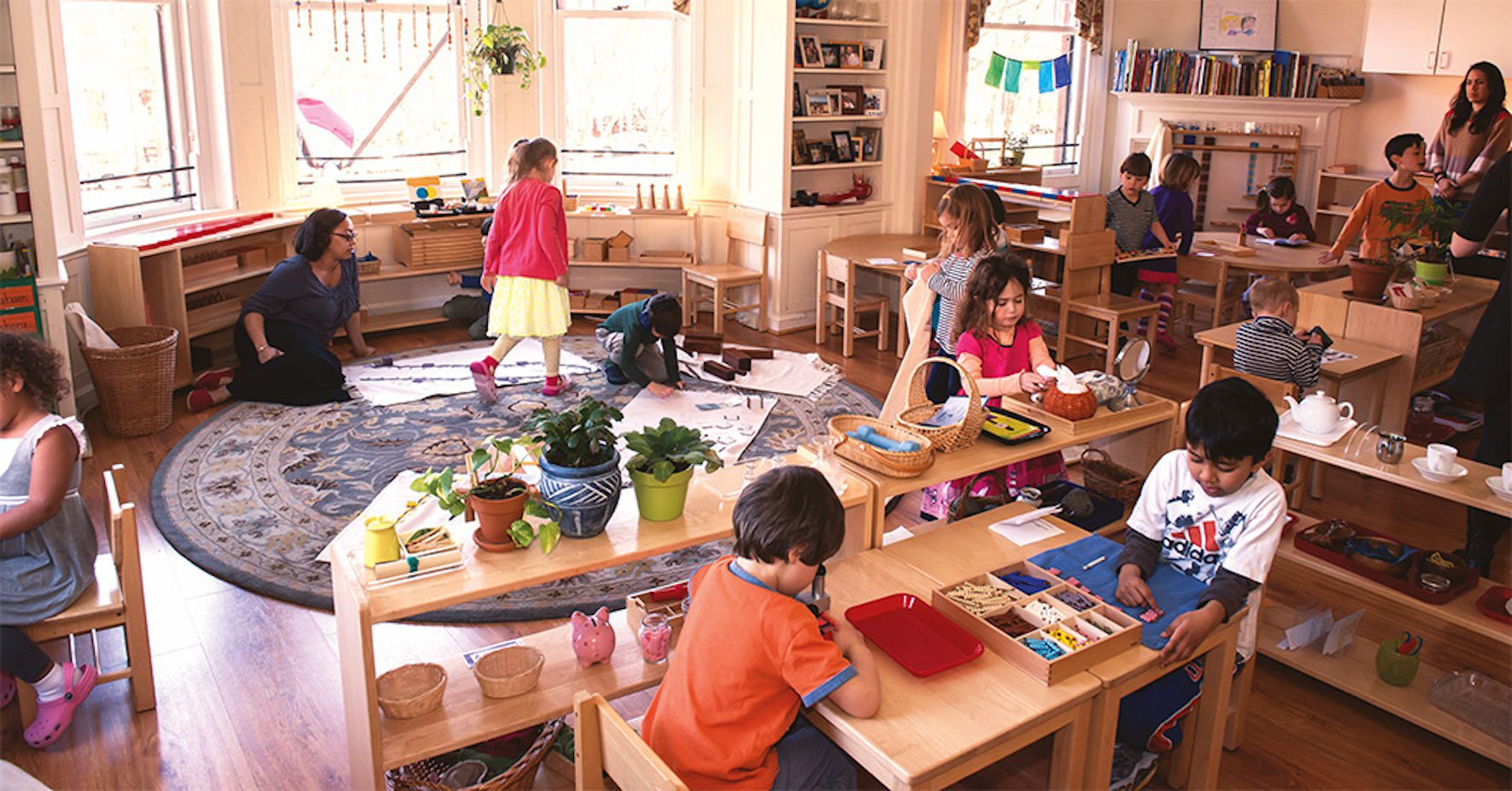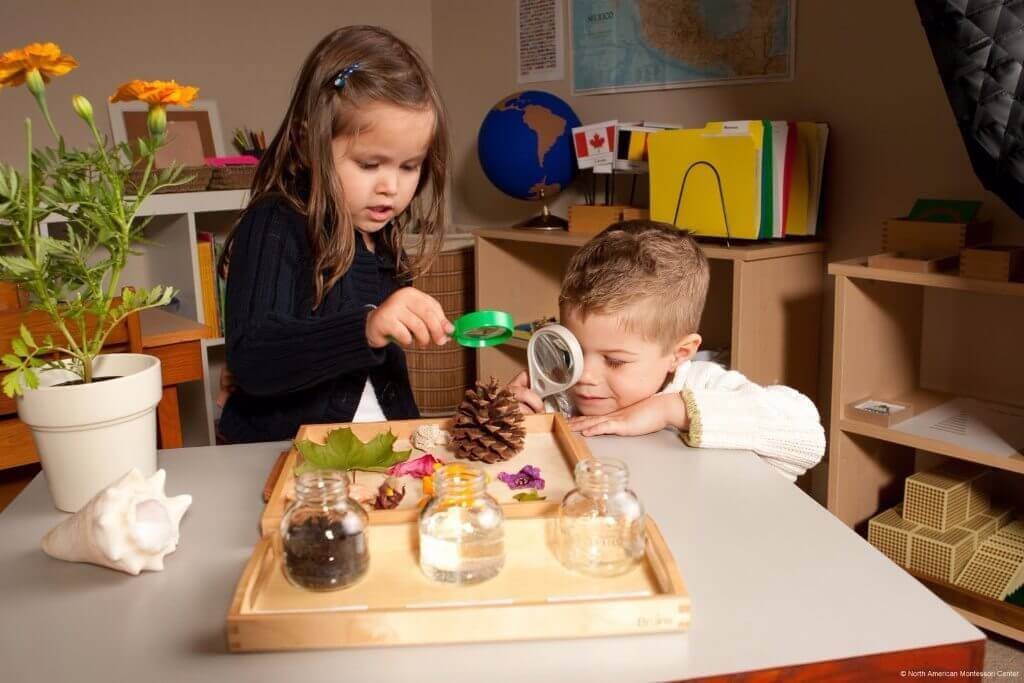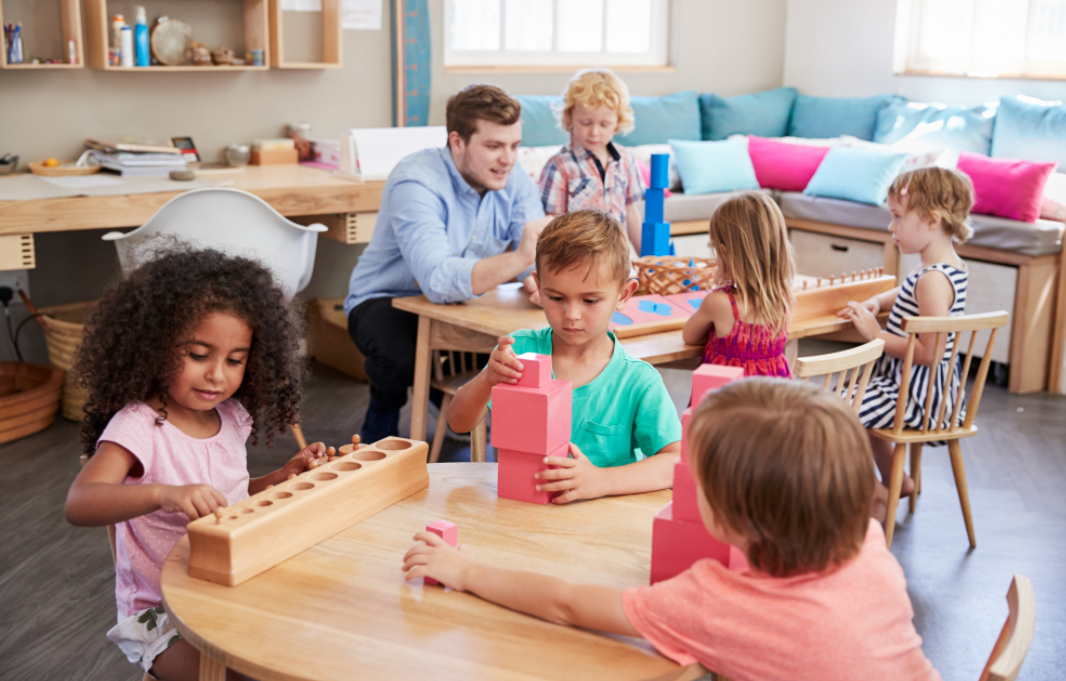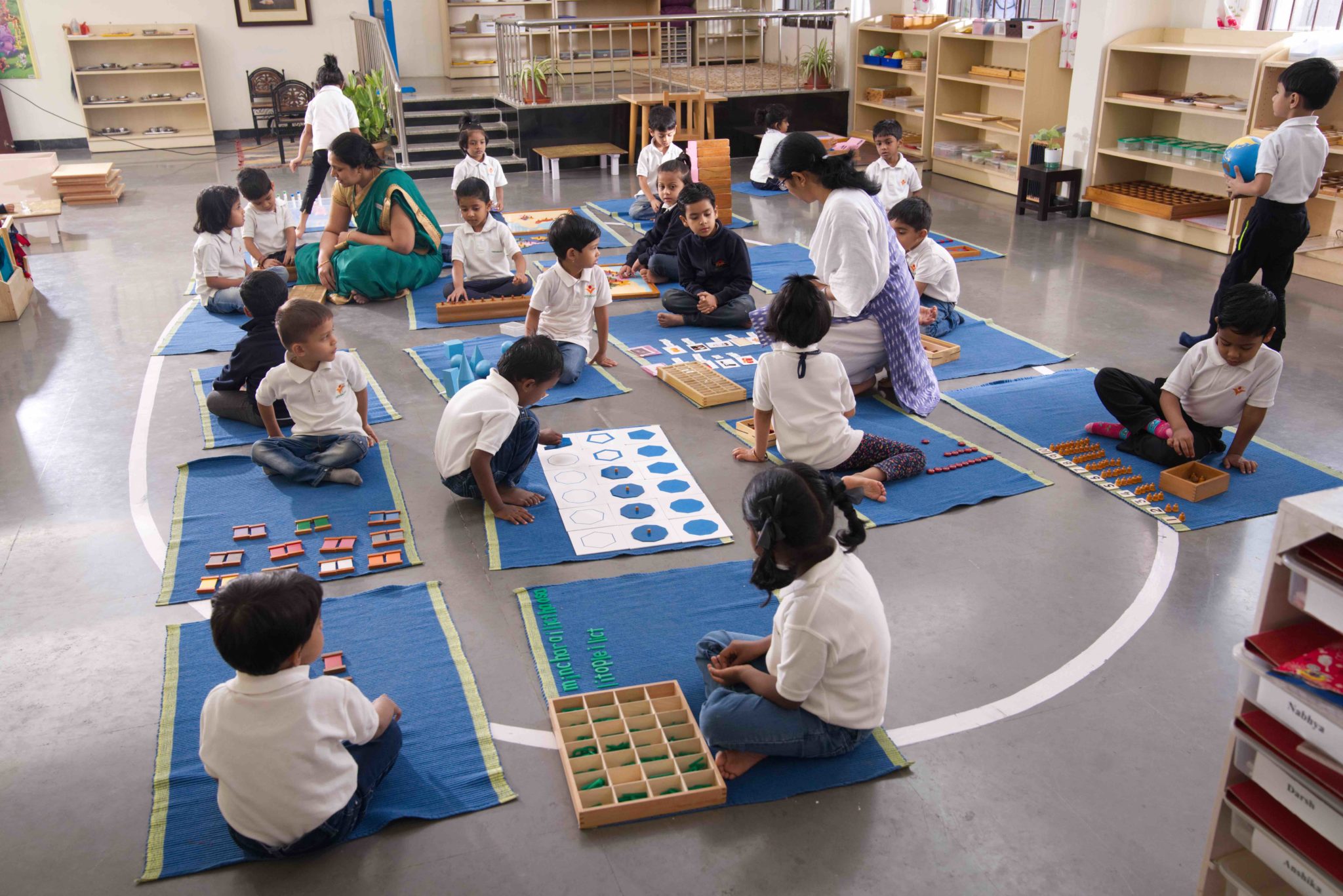Chưa được phân loại
What Exactly Is Montessori Education?
What Exactly Is Montessori Education? Montessori education is an innovative and child-centered approach to learning that emphasizes independence, hands-on experience, and collaborative play. Developed by Dr. Maria Montessori in the early 1900s, this educational philosophy advocates for creating environments where children can explore, engage, and learn at their own pace. The principles of Montessori education have gained global recognition, resulting in diverse implementations across various cultures and educational settings.

The Foundations of Montessori Education
Understanding what exactly is Montessori education requires exploring its foundational principles. At the heart of this method lies a deep respect for children’s individuality and their innate curiosity. Montessori education focuses on creating a rich environment where children can discover their interests and passions, fostering lifelong learners rather than passive recipients of knowledge.
Child-Centered Learning
Montessori classrooms are designed with the child in mind, encouraging exploration and creativity.
The layout of a typical Montessori classroom features various learning stations, each catering to different developmental needs and interests. For instance, there might be areas dedicated to practical life skills, sensory exploration, mathematics, language arts, and cultural studies. Each space invites children to engage without rigid expectations, allowing them to choose activities that resonate with them.
This child-centered ethos also extends to the role of the educator. Rather than being the traditional authority figure, the teacher assumes the role of a guide or facilitator. This shift empowers children to take charge of their learning journey, instilling confidence and initiative. By nurturing autonomy, Montessori education helps students develop critical thinking and problem-solving skills essential for success in life.
The Prepared Environment
A key aspect of Montessori education is the concept of the prepared environment.
This carefully curated space is designed to provide children with opportunities to learn through observation and interaction. In a Montessori classroom, materials are not only accessible but also tailored to various age groups, ensuring that each child can engage meaningfully with what’s available.
For example, instead of textbooks, children may work with tangible materials that represent abstract concepts. In math, they might use physical blocks to understand addition and subtraction visually. Such hands-on experiences cater to different learning styles and enable children to internalize lessons more effectively. Moreover, the aesthetically pleasing environment encourages peace and focus, promoting an atmosphere conducive to learning.
Multi-Age Classrooms
Another feature that distinguishes Montessori education is the multi-age classroom structure.
In these settings, children of varying ages learn together, typically spanning three-year age groups. This configuration fosters collaboration, as older students often mentor their younger peers while reinforcing their understanding in the process. Simultaneously, younger children benefit from exposure to advanced concepts and behaviors exhibited by older classmates.
This social dynamic cultivates a strong sense of community and promotes empathy among students. Children learn to appreciate differences in abilities and perspectives, developing social skills crucial for navigating life outside the classroom. As they interact with peers of various ages, they also learn to collaborate, communicate, and negotiate—skills invaluable for future endeavors.

The Montessori Curriculum
To truly grasp what exactly is Montessori education, one must delve into the curriculum’s unique aspects. This curriculum is not pre-defined; rather, it emerges organically from the child’s interests and developmental stage.
Practical Life Skills
Practical life skills form the backbone of the Montessori curriculum.
These activities foster independence and self-confidence through relatable tasks such as pouring, sweeping, buttoning, and cooking. By engaging in these everyday chores, children learn coordination, concentration, and self-regulation.
Moreover, mastering practical life skills lays the groundwork for academic learning. For example, when a child learns to pour water from one jug to another, they practice fine motor skills essential for writing. Additionally, these tasks cultivate a sense of responsibility and belonging within the classroom community, reinforcing the notion that every contribution matters.
Sensorial Activities
Sensorial education is another vital component of the Montessori approach.
Children explore their senses through various materials designed to refine their perceptions. These activities might include sorting objects by size, color, or texture and using sound boxes to distinguish between different sounds. Engaging with these resources enhances observational skills and cognitive development, enabling children to classify and comprehend the world around them better.
Furthermore, sensorial experiences promote creativity and imagination. By acquiring sensory awareness, children become adept at expressing their thoughts and ideas. They learn to articulate their preferences and observations, laying the foundation for effective communication—a skill crucial in today’s interconnected world.
>>>Buy now: EXTRA LARGE Sensory Activity Board
Academic Subjects
While the Montessori curriculum certainly incorporates traditional subjects like mathematics, language, science, and geography, the delivery differs significantly from standard educational frameworks.
In a Montessori setting, learning is often thematic, weaving together multiple disciplines to create a holistic understanding of concepts. For instance, a project on ecosystems may integrate botany, zoology, geography, and even art, allowing children to see connections and relationships rather than isolated facts.
Additionally, the emphasis on self-directed learning means that children progress at their own pace. If a student excels in mathematics, they can advance to more complex problems, while others may choose to spend additional time mastering foundational skills. This individualized approach ensures that all students feel challenged yet supported, leading to a deeper understanding of material.

The Role of the Educator in Montessori Education
To fully comprehend what exactly is Montessori education, it’s essential to examine the role of educators within this framework. Montessori teachers embody a unique blend of qualities and responsibilities that set them apart.
>>>Read more: Why Every Child Needs a Montessori Wooden Busy Board?
Guide and Observer
Unlike conventional educators, Montessori teachers act primarily as guides and observers.
They keenly observe the children’s interactions and engagement, gaining insights into their interests and learning styles. This observation allows educators to tailor the learning experience according to individual needs, providing support and resources when necessary while refraining from imposing direct instruction.
By taking a step back, teachers empower students to navigate challenges independently, fostering resilience and critical thinking. When children encounter difficulties, educators encourage them to reflect, problem-solve, and seek solutions rather than providing immediate answers. This essential skill of self-reliance will serve them well in their future educational pursuits and personal lives.
Creating Connections
Another pivotal function of Montessori educators is fostering connections among students.
By encouraging teamwork and shared learning experiences, teachers help cultivate a strong sense of community in the classroom. Collaborative projects, group discussions, and peer mentoring all contribute to building relationships grounded in mutual respect and support.
Educators also facilitate connections between children and the broader world. Field trips, guest speakers, and community service projects expose students to diverse perspectives and real-life experiences. By linking classroom learning to the external environment, teachers reinforce the idea that education extends beyond four walls, preparing children to engage meaningfully in society.
Lifelong Learners
Lastly, Montessori teachers are lifelong learners themselves.
They continuously seek professional development opportunities to enhance their understanding of child psychology, pedagogical strategies, and emerging trends in education. By embodying the values of curiosity and growth, educators model these traits for their students, fostering a culture of lifelong learning that transcends the classroom.
As they embrace new ideas and adapt their practices, Montessori teachers ensure that their approaches remain relevant and effective in nurturing the next generation of learners.

FAQs
What distinguishes Montessori education from traditional education?
Montessori education is characterized by child-centered learning, multi-age classrooms, and hands-on experiences, whereas traditional education often follows a one-size-fits-all approach with a focus on standardized curricula and teacher-led instruction.
Is Montessori education suitable for all children?
Yes, Montessori education can be beneficial for all children as it accommodates different learning styles and paces, promoting independence, critical thinking, and social skills in a supportive environment.
How does assessment work in Montessori schools?
Assessment in Montessori schools focuses on observation rather than traditional testing. Teachers evaluate children’s progress through ongoing assessments based on their engagement with materials and mastery of skills over time.
What age range does Montessori education encompass?
Montessori education serves children from infancy through adolescence, typically covering birth to 18 years old. Various programs exist, including infant/toddler, preschool/kindergarten, elementary, and secondary levels.
Are Montessori schools accredited?
Many Montessori schools pursue accreditation through recognized organizations such as the American Montessori Society (AMS) or the Association Montessori Internationale (AMI). However, it’s essential to research specific institutions to verify their accreditation status.
Conclusion
In summary, what exactly is Montessori education is a profound question that encompasses a wealth of principles, practices, and philosophies. This child-centered approach prioritizes independence, creativity, and collaborative learning, fundamentally transforming the educational landscape. With a focus on guiding rather than instructing, Montessori educators foster an environment where children thrive as active participants in their learning journeys. Through practical life skills, sensorial experiences, and individualized curriculums, Montessori education equips children with the tools necessary to navigate their world confidently. By embracing the core tenets of this approach, we can nurture well-rounded, engaged learners ready to tackle the challenges of the future.
